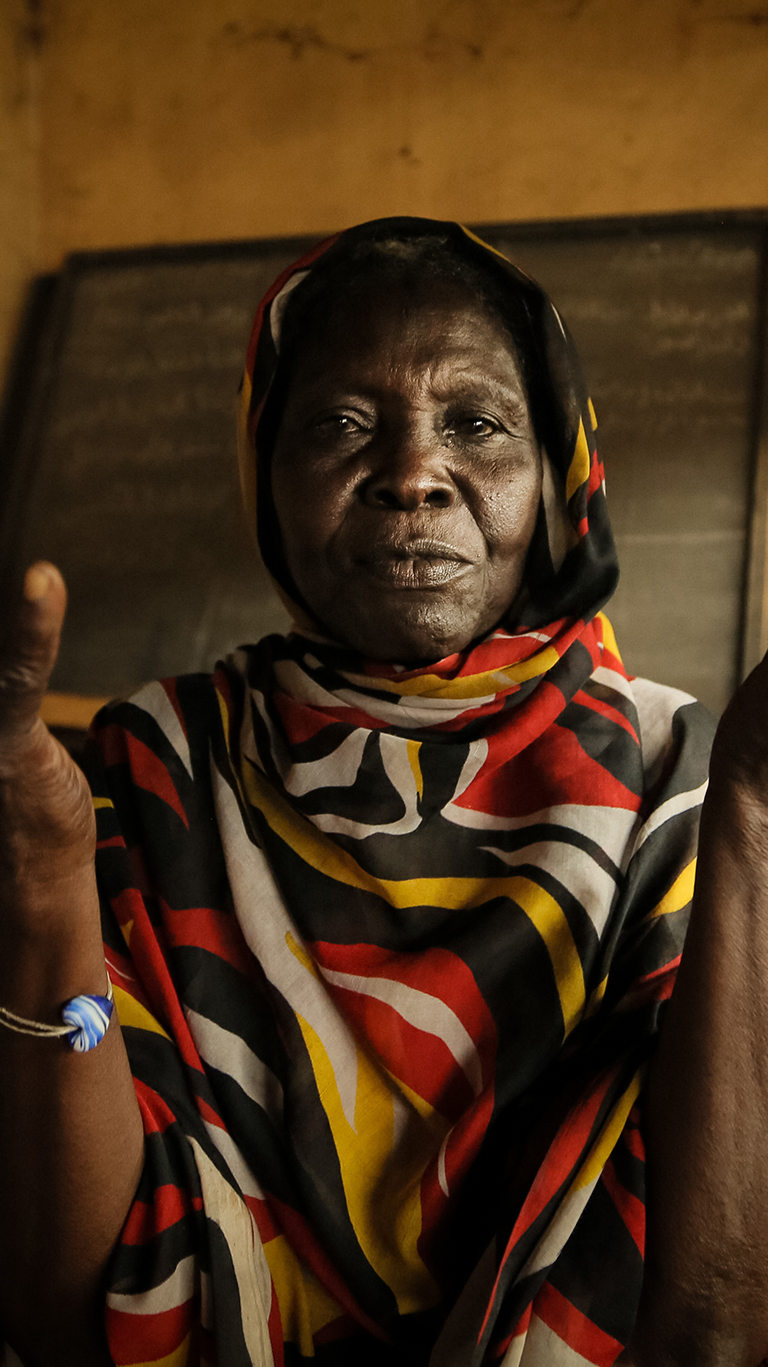MILITANCY, INDEPENDENCE, TRANSPARENCY

Empowerment
© Sebastien Duijndam
At Médecins du Monde, empowerment is a key concept. Whether we are talking about individuals, communities or the organisations we work with, empowerment is as much a question of ethics (in line with our values, principles and history) as it is a question of effectiveness.
EMPOWERMENT AT THE HEART OF CURRENT STRUGGLES
Influenced by feminism and minority emancipation movements, empowerment has its roots in the 1970s and is inspired by the thinking of Paolo Freire. Since then, empowerment has raised powerful criticisms of social injustice and inequality.
EMPOWERMENT AT MÉDECINS DU MONDE
AUTONOMY
Médecins du Monde uses the term “empowerment” to refer to both a process and an objective by which individuals and groups of people develop their power to act and transform their environment and living context.
This process is based on:
- people and communities participating in actions that affect them,
- identifying and questioning relationships of power and domination, to empower people in their social and health choices and pathways.
Encouraging empowerment requires a shared set of values and attitudes, both in terms of individual and organisational professional practices.
MÉDECINS DU MONDE IMPLEMENTS AND MAINSTREAMS THIS APPROACH TO EMPOWERMENT ACROSS ALL ITS ACTIVITIES, IN ALL ITS CAUSES AND IN ALL ITS PROJECTS. IN THIS WAY, WE IMPROVE THE QUALITY OF OUR WORK.
EMPOWERMENT AND HEALTH
THE OTTAWA CHARTER
In 1986, the notion of empowerment was used by the World Health Organization in its famous Ottawa Charter:
“Health promotion works through concrete and effective community action in setting priorities, making decisions, planning strategies and implementing them to achieve better health. At the heart of this process is the empowerment of communities, their ownership and control of their own endeavours and destinies.”
The Ottawa Charter recognised empowerment as essential to health projects, directly linked to the participation of the people concerned and community health experiences.
COMMUNITY HEALTH
We believe that each individual should be able to take responsibility for their own health. This is why we have adopted a community health approach (in line with the movements against AIDS, the “nothing for us without us” approach, and the idea of the patient as expert in their own health).
We know that ensuring that people participate in projects that concern them is one of the guarantees that our work will be relevant:
- participatory and co-constructed actions respond more accurately to people’s needs,
- they are more accepted by the populations,
- they are easier to sustain at the end of the projects.
We seek this participation at all stages of the projects we implement.
ON THE FIELD
MÉDECINS DU MONDE RELIES ON THE KNOWLEDGE, EXPERTISE AND EXPERIENCE OF THE INDIVIDUALS AND COMMUNITIES DIRECTLY CONCERNED BY ITS PROJECTS. IN THIS WAY WE CAN ADAPT OUR METHODS OF INTERVENTION AND MAKE SURE THEIR CONCERNS ARE AT THE HEART OF OUR WORK.
OUR WORK
In order to encourage empowerment in our projects and the participation of the people and communities we work with, we use many strategies, actions and methods, often in combination.
Because access to reliable, comprehensive and appropriate information is an essential condition for people to make informed choices about their health and to strengthen their autonomy in their social and healthcare pathway, our methods are centred around the development of health education. This depends on the communities we work with, the context, the project and our objectives.
PEER WORKERS
Médecins du Monde promotes the integration of people who are directly involved and have personal knowledge of practices in the community, supported by our salaried and volunteer teams. These individuals are known as “peer workers” or “peer educators”.
In the fields of HIV and hepatitis C virus (HCV), working with peers is recognised as an essential intervention strategy and is central to harm reduction projects.
In addition to improving the quality of projects by making them more relevant and successful at reaching communities that are sometimes hard to reach, working with peers is one way of involving the people in the projects. It is a process that contributes towards recognising experiential knowledge and should improve the acquisition of other knowledge and expertise.
COLLECTIVE INITIATIVES
Supporting and sustaining collective initiatives and community mobilisation is an effective and concrete way to involve people in activities, but also to build on existing community resources and respond to the needs that people express.
In the same vein, Médecins du Monde supports people’s initiatives and their desire to organise themselves, in formal or informal groups. The desire to move from a group of people who share the same problem or objective to an organised and constituted group, in which roles and objectives have been clarified and worked out, represents a real opportunity to develop a sustainable community and a dynamic of empowerment.
FIND OUT MORE
PARTNERSHIPS
At Médecins du Monde, we strive to build high-quality, fairer and more transparent partnerships based on a common desire to improve rights and access to prevention and care, where there is space for everyone.
Developing such partnerships with local and community actors is a particularly strategic empowerment opportunity as it can:
- genuinely and honestly ensure that decisions and power are shared with community actors;
- strengthen these actors in a sustainable way;
- ensure the struggles of communities are heard.
COMMUNITY ADVOCACY
Supporting people and communities to develop their advocacy is for us an emancipatory and sustainable means of transforming societies within an empowerment approach. By supporting communities in their political struggles to access rights and health, rather than acting in their place, we strengthen their capacity and legitimacy.
HEALTH DEMOCRACY
Médecins du Monde supports the participation of people in the development of public policies that affect them. Promoting health democracy means advocating for these people to be able to participate and be included in consultation and decision-making procedures.











